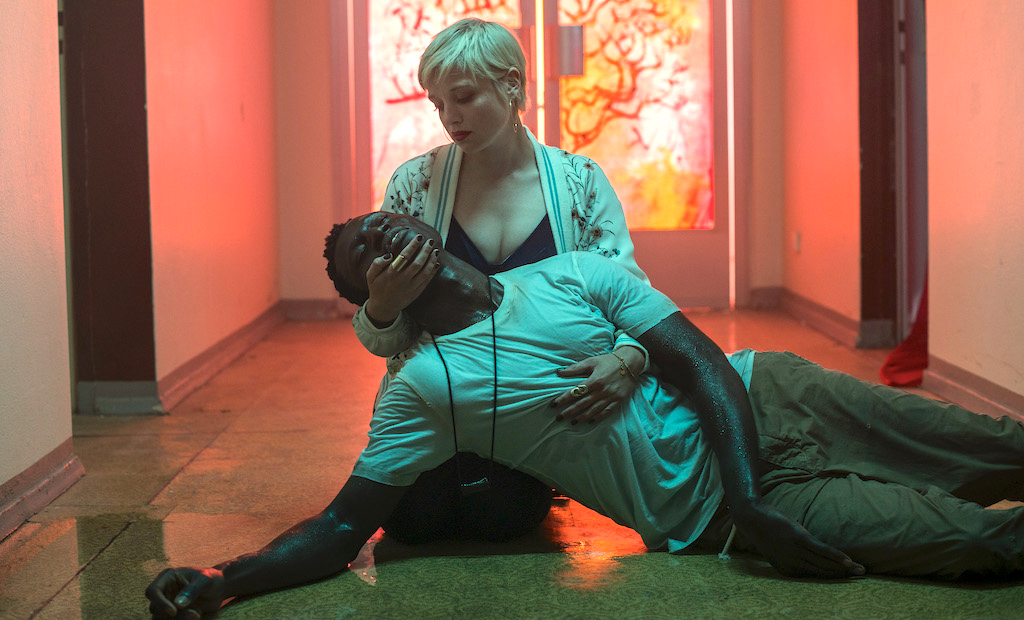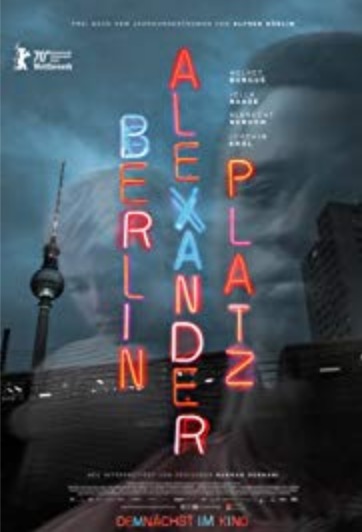Berlin Alexanderplatz

An emancipated adaptation of the 1929 novel by Alfred Döblin, director Burhan Qurbani’s third feature-length narrative film gives the story a slick, contemporary update that is remorseless in the perils it wishes to inflict upon its protagonists. This is clearly defined from the outset, with the story’s intermittent narrator Mieze (an excellent Jella Haase) informing viewers in her wearied, wispy voice that they’re about to see just how Berlin breaks Francis (Welket Bungué).
The protagonist has arrived in Berlin from West Africa, with the illegality of his calamitous arrival in Europe via boat evocatively captured in the opening scenes – with gently bleak underwater photography bathed in the light of overhead distress flares. Lacking any right to work, Francis beds down in a type of flophouse on the edge of the German capital, and has illegal employment as a contractor working beneath Alexanderplatz – a square in central Berlin (which is depicted as being like a descent into Hades). Fired after a good samaritan act draws too much attention to the site’s illegal labour force, Francis accepts an offer from the menacingly erratic Reinhold (Albrecht Schuch) and begins to sell drugs.
There’s a familiarity to the dynamic, but there’s also a vigour to Qurbani’s choice to simply change the period setting of Döblin’s novel and make the lead character a non-white migrant. Divided into five parts and an unnecessary epilogue, Berlin Alexanderplatz unfurls over three hours. It’s difficult to see where any cuts – even the most judicious – would really have been necessary, but given the film’s expansive running time, it’s necessary to gel with the characters. And we do. Bungué has an intense charisma as Francis, with Schuch almost ghoulishly unsettling as the compulsive Reinhold.
The female characters, including Mieze (who later appears as Francis’s lover and motivation for his self-determined quest to be a good person), are not underdeveloped, yet are all of the prostitute, disposable one-night stand, and nightclub fodder variety. They’re victimised, but are not necessarily victims – no more so than the marginalised men in the piece anyway.
Qurbani’s shrewd plotting of his magnum opus (thus far, anyway – the guy is not yet 40) overcomes any attempts at rationalising the characters in the film. The narrative feels rather brisk, despite the extended length of the harshly beautiful piece.
Oliver Johnston
Berlin Alexanderplatz does not have a UK release date yet.
Read more reviews from our Berlin Film Festival 2020 coverage here.
For further information about the event visit the Berlin Film Festival website here.
Watch a clip for Berlin Alexanderplatz here:



























Facebook
Twitter
Instagram
YouTube
RSS